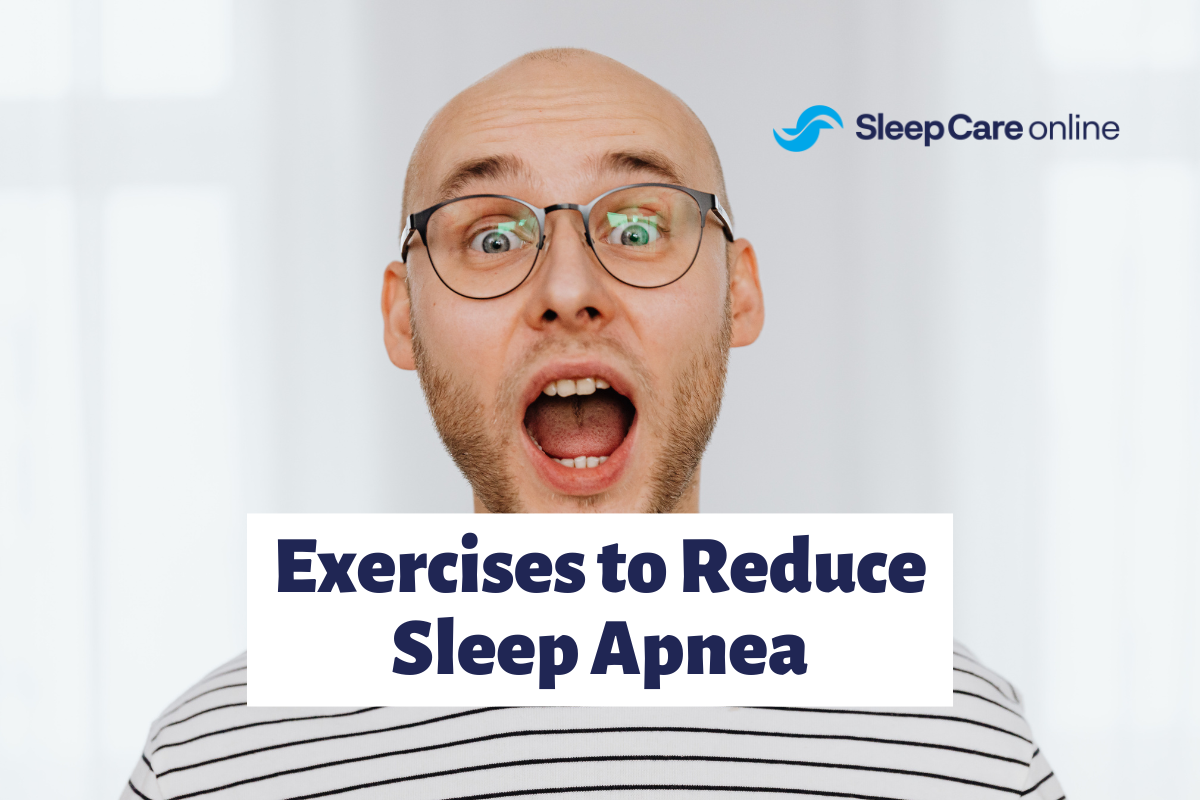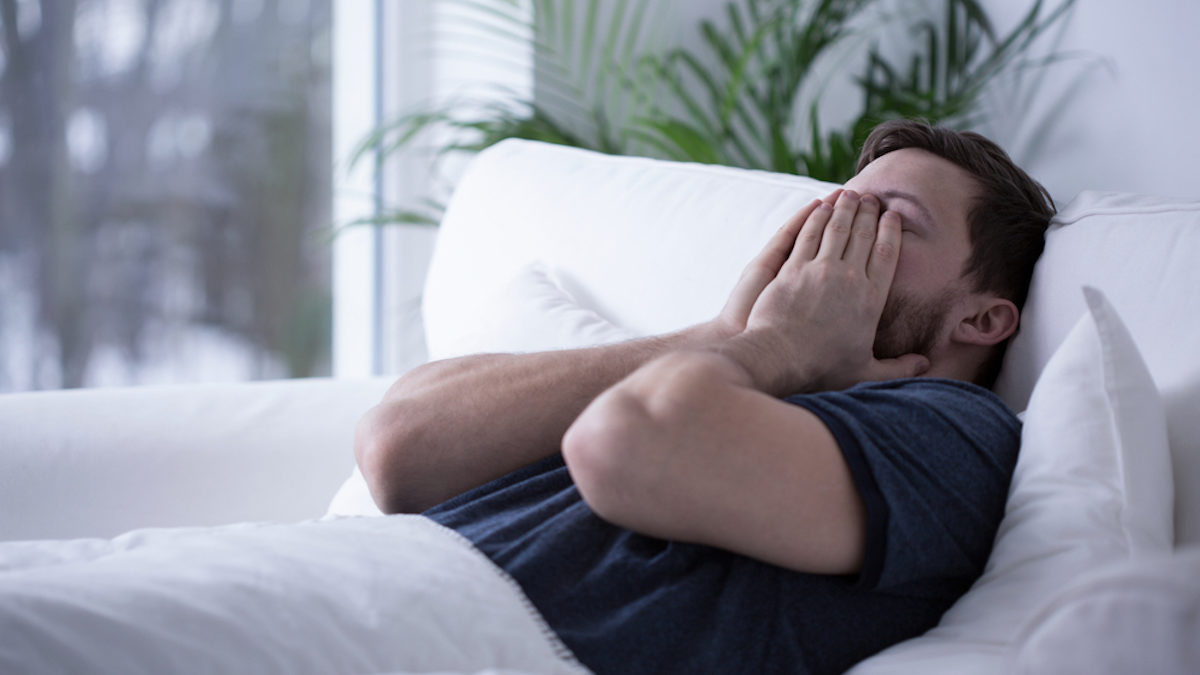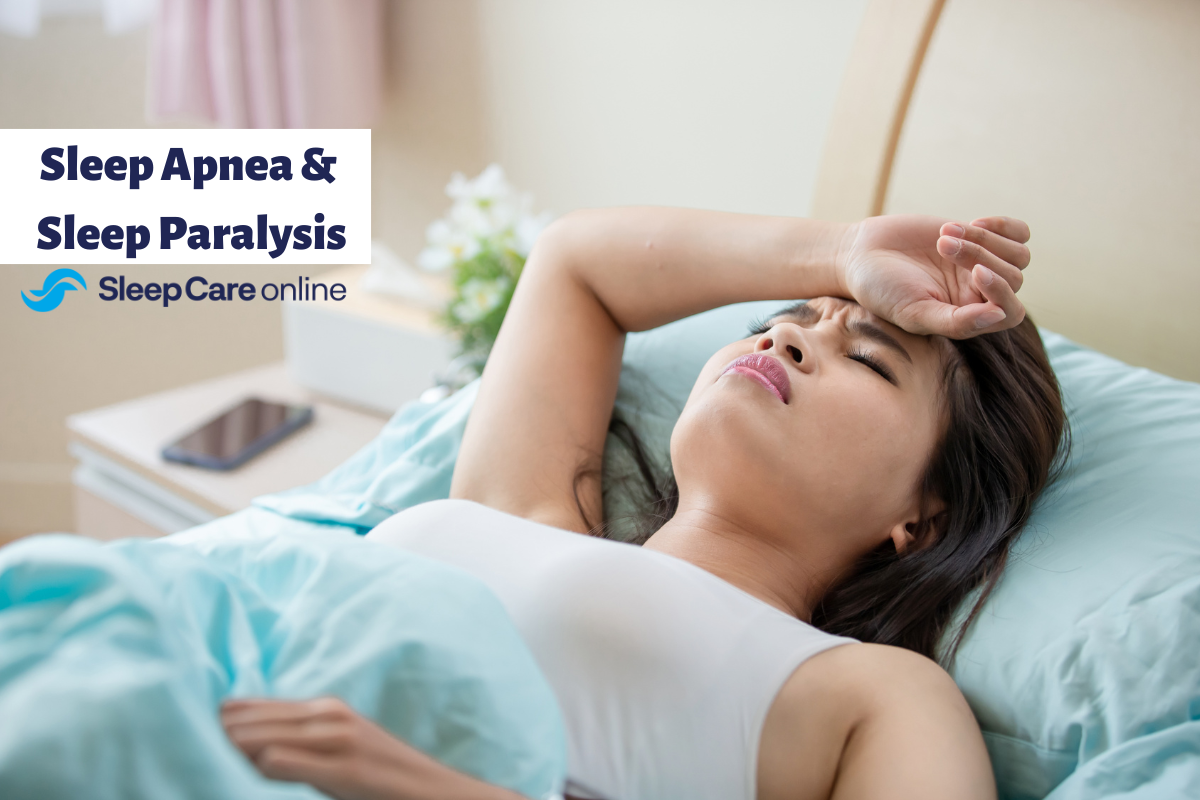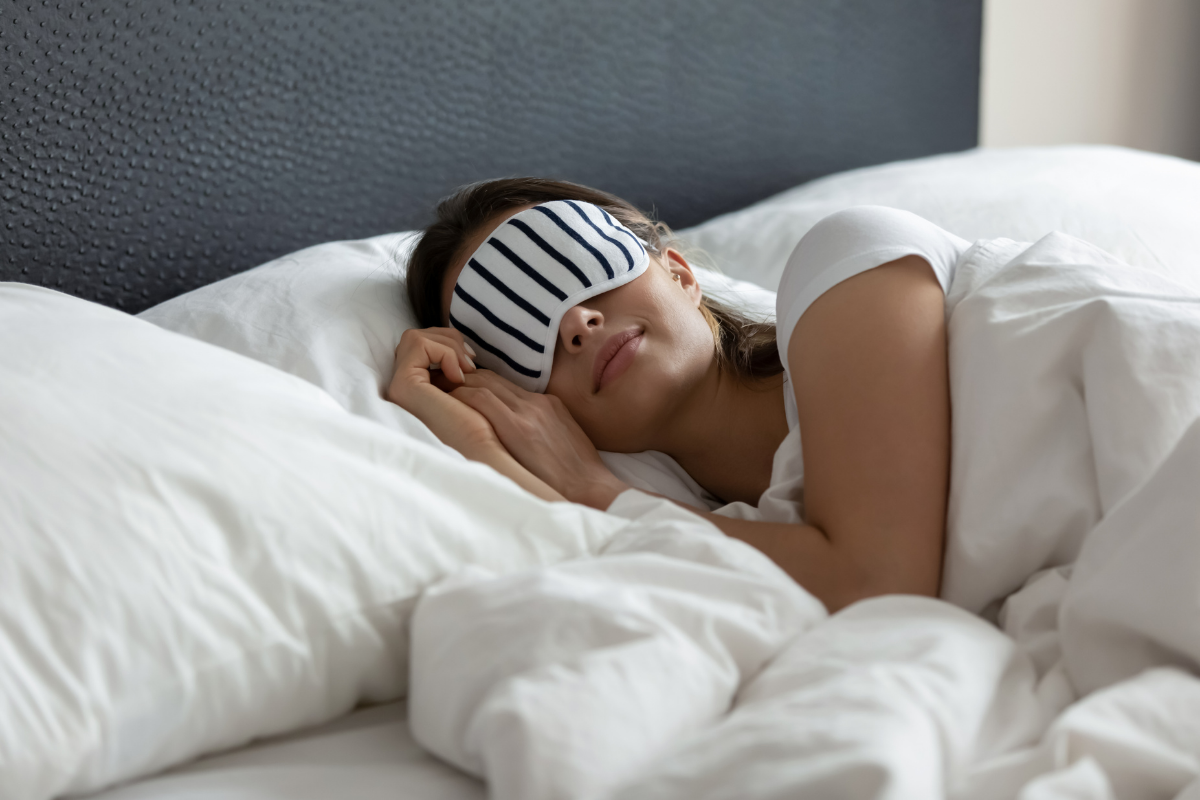Although using a CPAP machine is the most effective way to treat sleep apnea, one recent study found that oral exercises significantly reduce the severity of sleep apnea, leading to improved sleep quality and reductions in snoring and daytime sleepiness. Committing to exercising the tongue and throat muscles to strengthen them is highly beneficial for sleep apnea patients. The key to reducing sleep apnea symptoms and seeing positive results is consistency with these exercises, similar to your overall exercise regimen.
The study was conducted on subjects with moderate OSA where they undertook a consistent and regimented set of exercises in a controlled study group over three months. The result was a 39 percent reduction in events.
Why Do We Snore with Sleep Apnea?
While snoring is a symptom of sleep apnea, it does not necessarily mean you have that sleep disorder. Snoring is caused by airflow over the relaxed tissues in your throat. However, when your throat muscles relax so much that they close up periodically during the night, then you may have sleep apnea. Additionally, the louder a person snores, chances of having sleep apnea are greater.
When you have sleep apnea, the throat muscles tend to relax consistently from night to night, causing the airway to close on a regular basis. This not only results in loud snoring but also is sometimes accompanied by waking up gasping for air or feeling like you are choking. The loud snoring your partner may hear may be a direct result of obstructive sleep apnea. If snoring and other symptoms persist, then it may be time to address your sleep disorder.
Physical Exercises for Snoring and Sleep Apnea
According to the most recent World Health Organization Report on chronic respiratory diseases, approximately 100 million people worldwide have OSA. With so many instances of obstructive sleep apnea, exercises are one-way patients can help improve sleep.
As with weight loss, sleep position training, and other widely used methods to treat OSA, each can profoundly reduce apnea events and in some cases eliminate them.
Simple exercises are an easy way to help reduce the frequency of sleep apneas along with additional CPAP therapy. Oral exercises strengthen and train oral muscles to prevent closure during sleep. Exercises include breathing, mouth, throat, and tongue exercises which can be completed daily.
Myofunctional Therapy for Sleep Apnea
Myofunctional therapy is one of the innovations to help sleep apnea patients outside of CPAP therapy. The method helps correct the improper function of the tongue and facial muscles. It also involves strengthening the tongue and orofacial muscles by teaching individuals how to engage the muscles in the appropriate position.
This type of therapy is especially helpful for patients with sleep apnea who happen to be mouth breathers. Mouth breathing exercises through the therapy can help reduce other issues such as neck and shoulder tension and speech problems related to mouth breathing. The techniques not only help reduce the instances of apneas at night but improve healthy breathing all the time.
Breathing Exercises for Sleep Apnea
Some breathing exercises can help strengthen oral muscles.
 Fake Yell
Fake Yell
First, open your mouth as wide as possible and stick your tongue out in a downward position. Your tongue needs to be as far out as possible. The uvula, the small fleshy piece in the back of your throat, needs to be lifted upwards as you stick your tongue out. Secondly, use a mirror to ensure that you’re raising the uvula correctly. After practice, you will be able to sense the uvula lifting, and you will not require the mirror. Hold the elevated uvula for five seconds and repeat 10 times.
 Jaw Release
Jaw Release
A tight jaw puts added pressure on your breathing passages. Deep breathing exercises will relax the jaw and reduce any tension. Additionally, stretching and releasing your jaw will increase the flexibility of your mouth and its surrounding muscles. With your tongue in the resting position and your mouth closed, arch your tongue against the roof of your mouth and slide the tip of your tongue back as far as it will go along the roof of your mouth. Repeat this process two times each day for five minutes to aid in reducing sleep apnea issues.
 Alternating Nasal Breathing
Alternating Nasal Breathing
Practicing nasal breathing helps stabilize the airways for when you are sleeping. To start, close your mouth and relax your jaw. Then, inhale through your nose. Use a finger to close off one nostril. Breathe out gently through the open nostril. Do this about 10 times while alternating which nostril you are breathing out of.
 Diaphragmatic Breathing
Diaphragmatic Breathing
Breathing using your diaphragm is very beneficial. This type of breathing uses your stomach and moves it outward while inhaling and inward while inhaling, ensuring the proper oxygen and carbon dioxide exchange. To practice this type of breathing, place one hand on your chest and one hand on your stomach. Inhale deeply through your nose as your stomach pushes outward against your hand. Exhale slowly through your nose. The hand on your chest should remain still at all times. Repeat this exercise for 5-10 minutes every day.
Mouth Exercises to Stop Snoring
Mouth exercises strengthen both the tongue and throat.
 Palate Stretch
Palate Stretch
The roof of your mouth, also known as the soft palate, plays a role in the severity of your sleep apnea. Exercising this part of your mouth can relieve symptoms and strengthen it. A natural stretch for your soft palate is to open your mouth as wide as you can while saying “ah” in the back of the throat. Continue this stretch for 20 seconds. Close your mouth, wait five seconds, then repeat between five and 10 times.
 Hold a Spoon Between Lips
Hold a Spoon Between Lips
Place the handle of a metal spoon between your lips and hold it in place with only your lips for 10 seconds. Do not place the handle between your teeth. Try to keep it parallel to the floor. As your strength improves, you can place other small objects on the spoon for added weight (i.e., sugar cube). Repeat 10 times.
 Front-to-Back Tongue Slide
Front-to-Back Tongue Slide
Doing this exercise will help strengthen the tongue to avoid collapses in the back of the throat, resulting in fewer apneas during the night. First start by placing the tip of your tongue against the back of your top front teeth. Then, slowly slide your tongue backward with the tip moving along the roof of your mouth. Repeat this exercise 5-10 times.
 Tongue Pushup
Tongue Pushup
This exercise will improve both the tongue and soft palate of your mouth by toning it and strengthening it. First start by sticking your tongue outward against the roof of your mouth and press your entire tongue against it. Stay in this position for 10 seconds at a time, repeating it 5 times.
Throat Exercises for Sleep Apnea
If snoring is a problem whether you are managing sleep apnea or not, you can try these exercises for a more peaceful sleep for your bed partner.
 Breathe Through Your Nose
Breathe Through Your Nose
Nasal breathing reduces snoring. The more you can breathe through your nose, the more you can reduce snoring. Try practicing breathing inward and outward through your nose several times.
 Pronounce Vowel Sounds
Pronounce Vowel Sounds
Pronouncing and repeating different vowel sounds helps tone throat muscles so they are not as relaxed when you sleep, which can mean reduced or quieter snoring. Start by repeatedly saying “A-E-I-O-U” normally, and then adjust it to emphasize each letter. You can also say them quicker as well. Repeat the same sound 10-20 times before changing to a new letter. Combining letter sounds is also beneficial.
 Sing!
Sing!
Singing is actually a form of exercise that keeps your throat muscles tight and toned. Singing will activate many muscles in the throat and mouth because of the pronunciation of many sounds. Sing to your heart’s content and snore less.
Does Going to the Gym Help You Sleep?
Along with oral exercises, overall physical exercises for your body can help contribute to a good night’s sleep and reduce the frequency of sleep apnea. A dedicated physical exercise routine helps prepare you for a nighttime rest, especially as you develop a physical fitness routine aligned with a sleep routine.
A few hours at the gym also helps you minimize other negative attributes that may contribute to sleep apnea such as obesity. Regular exercise reduces the effects of sleep apnea regarding heart health and mental health as well. Exercise never hurts and only helps as you manage your sleep apnea as part of a broader health plan.
Diagnosing Sleep Apnea & Treatment for Snoring
The first step to addressing sleep apnea is to get an accurate diagnosis. You can first start with a home sleep apnea test. Here is how it works: With the Complete Care Package, schedule a 10-minute telehealth visit with a healthcare provider to discuss your symptoms, upcoming sleep study, test results, and treatment options.
- A multi-night, disposable home sleep apnea test is mailed to your home to be completed at your convenience.
- A physician analyzes the sleep data and provides a prescription if needed.
- Schedule an optional follow-up appointment (additional fee applies).
- We connect you to sleep experts who can offer customized sleep therapy options, assistance in equipment purchase, and initial set-up.














